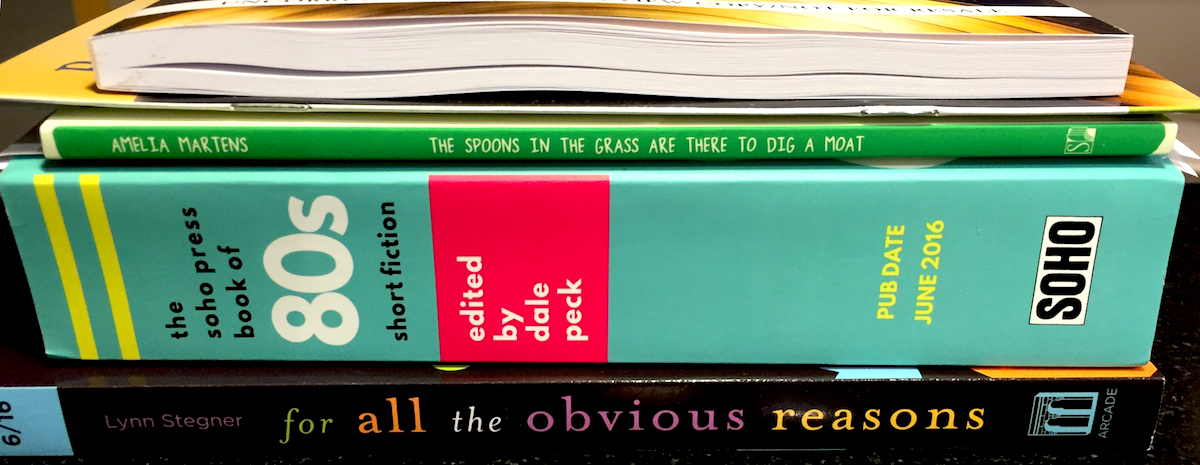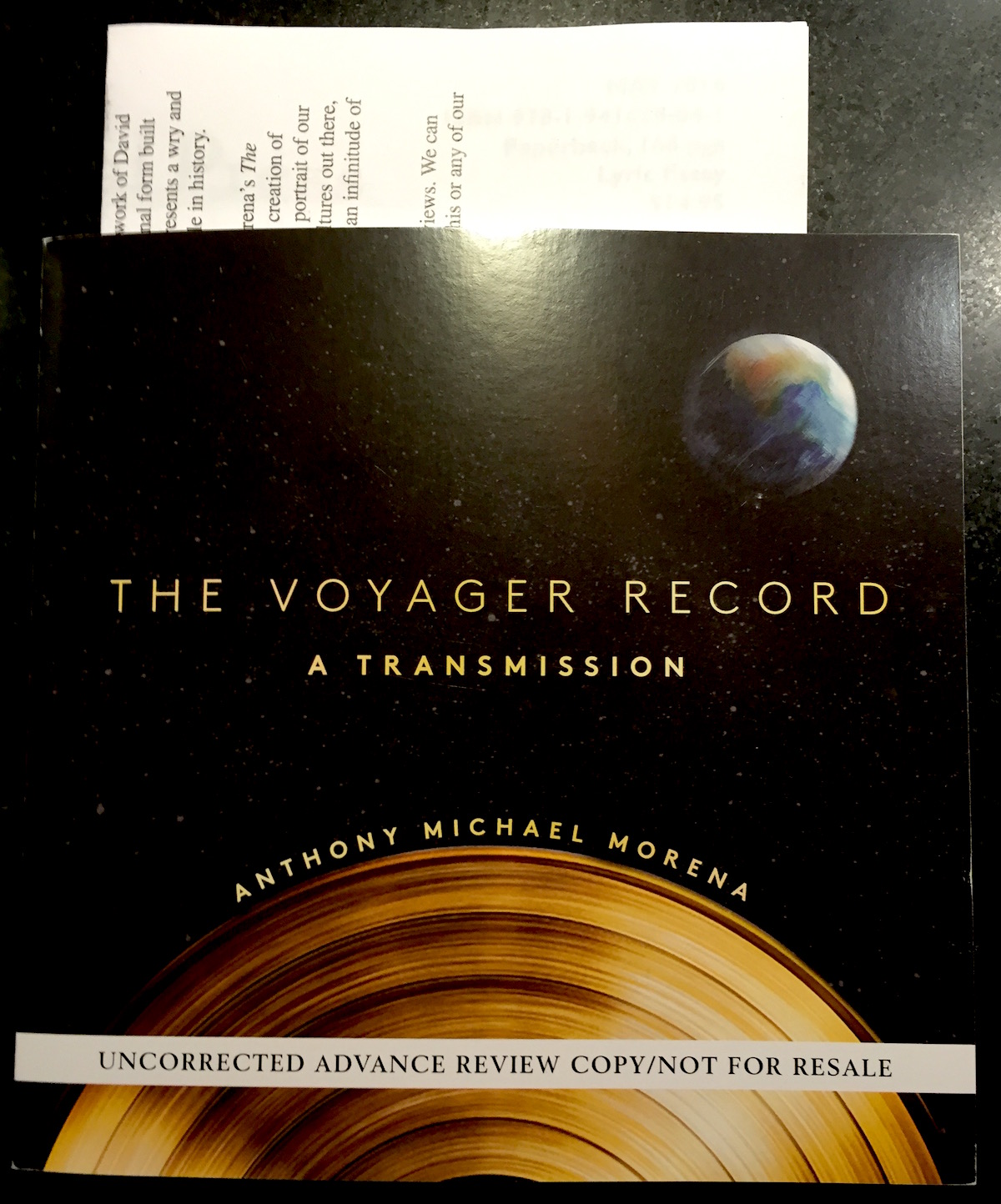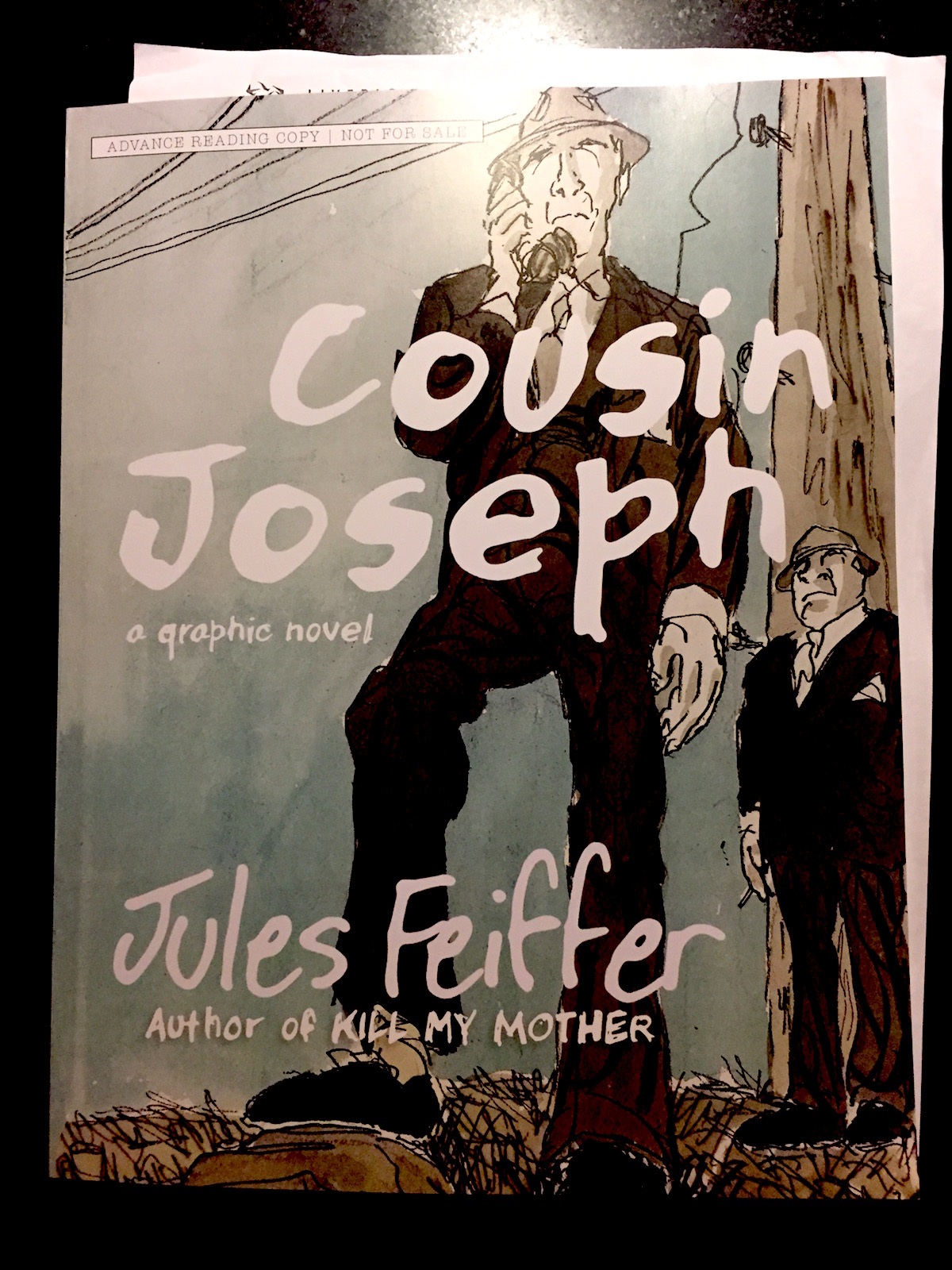Trying to make a splash as a librarian? Bring cookies.
“This is probably the best job in the world,” says Chris Gustafson, the school librarian at Whitman Middle School. “It’s so much fun, and what makes it so much fun is its biggest challenge.” Elementary school classes, she explains, are scheduled for librarian visits, while “no one has to come to the library in a middle school — it’s my job to make that happen,” to entice the students into visiting the library.
Gustafson’s secret weapon? “The first thing I did on my job was I baked a very large batch of cookies and got a list of the teachers,” she says. “I talked to each teacher. I went to them, I gave them a cookie, I asked them what they were doing in class and how it was going.” After listening to the teachers discuss their problems, she was able to offer library resources as solutions. Every year since, Gustafson has broken out the cookies and talked with her teachers. The baked goods seem to be working; she’s been at Whitman for 16 years.
When asked if the age group of the kids presents any particular problems, Gustafson seems genuinely puzzled at the thought. “Middle school kids are the absolute best. They have a great sense of humor, and when you treat them with respect, they respond with the same.”
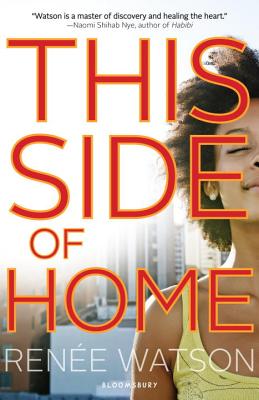
Gustafson also hosts book clubs with student groups. She’ll bring several books based around a theme into a classroom and tell the students about them. The students will choose the book that most appeals to them and sort themselves into smaller groups to read and discuss the books.
As Gustafson talks on the phone with me, she collects books for an upcoming book club based around the theme of stereotypes. Among the titles she chooses are:
This Side of Home by Renée Watson, about a pair of twins who are living in a rapidly gentrifying community.
Mexican Whiteboy by Matthew Peña, a novel “based on his own personal experience of being mixed-race and not feeling Mexican enough.”
And Out of Nowhere, by Maria Padian, a novel about a Maine town that adjusts to a sudden influx of refugees.
“My job as a librarian is always to be finding books that are both windows and mirrors for my students,” Gustafson says. The trick is carrying both kinds of books. Sometimes she’ll recommend a book for a student thinking that they’ll personally identify with the protagonist, but they’ll go instead for a book about a completely different kind of experience. “I don’t want to make any assumptions about what kind of books that they need, so I need to have a variety.”
Finally, does Gustafson have any advice for parents who want to help their kids become better readers? “Read to your kids,” she says. “Keep reading to them, even though they’re in middle school and they say they don’t want you to read to them. Keep reading to them.”
The Adverbs of War
Published March 09, 2016, at 11:30am
Don Mee Choi’s new book Hardly War is a linguistic battlefield of a book that looks like nothing else you've ever seen.
A Note to Our Readers: Announcing a neat new partnership
We here at the Seattle Review of Books are very pleased to announce a new partnership: starting this week, you’ll be able to find our reading calendar picks and selected book reviews in the print edition of the Seattle Weekly. We’ve noticed over the last year or so that the arts writing in the Weekly, under the guidance of editor-in-chief Mark Baumgarten and culture & commix editor Kelton Sears, has been getting better and better — new work from local cartoonists, the best music coverage in the city, and a focus on artists that no other media outlets in town are covering. We’re thrilled to share space with their arts coverage, and we’re excited to get the Seattle Review of Books out in front of the Weekly’s readership.
The Seattle media landscape has changed a lot over the last year, and Seattleites are, understandably, anxious about it. So for the sake of transparency, here’s a FAQ to address any concerns:
Does this mean the Seattle Weekly bought the Seattle Review of Books, or that the Seattle Review of Books bought the Seattle Weekly? Are you moving, or changing URLs?
Nope! We’re just a couple of media outlets sharing our expertise and resources. We’re both totally independent of each other, but we do think that if you like the Seattle Review of Books, you’ll probably enjoy what the Seattle Weekly is doing, and vice versa.
Does this mean I have to go somewhere else to read the Seattle Review of Books?
Absolutely not! If you’re one of the many thousands of people who visit this site daily, the only change you’ll notice is that “Your Week in Readings” has moved to Wednesday and, starting next week, our “Bookstore of the Month” feature will be moving to Mondays. Everything that runs in the print Weekly on Wednesdays will also be published right here on the site on Wednesdays, too. And we'll continue to publish new pieces daily that won't see print in the Weekly. You don’t have to change your routine at all, though we hope it’s nice to know that if you’re sick of staring at screens on your daily commute, you’ll have the option of reading some of our previews and reviews in print, too.
I’m a Weekly reader visiting the Seattle Review of Books for the first time; what should I know about your site?
Welcome! We’re glad you’re here. Thanks for visiting. All you really need to know is that we’ve been publishing book reviews, news, previews, and interviews from a Seattle perspective since the end of July 2015. We hope you’ll visit our reviews page and catch up on some of our columns. If you’d like to learn even more about us, please visit our “About” page.
How can you claim to be the Seattle Review of Books when you haven’t covered [INSERT AWESOME SEATTLE BOOK-THING HERE] yet?
The Seattle book scene is huge; even though we’ve been covering it for a decade, we still learn something new about Seattle on a weekly basis. If there’s something we’re not covering, please let us know. We’ll be forever in your debt.
I have another question you didn’t address here! How do I get an answer?
You can contact us via email or reach out over Twitter. We’re always excited to hear from our readers!
Your Week in Readings: The best literary events from Wed March 9th to Tues March 15th
Wednesday March 9: Beacon Bards
Readers at this fun, laid-back reading series in the heart of Beacon Hill include Seattle poets Aaron Counts and Matt Gano, as well as Leija Farr, the city’s first-ever Youth Poet Laureate. At just 17, Farr’s a scary-good poet; she’s already won no less a vocal fan than Sherman Alexie. The Station Coffee Shop, 2533 16th Ave S, 453-4892, beacon-arts.org. Free. All ages. 7 pm
Thursday March 10: A Craft Talk with Susan Orlean
Susan Orlean is either best known as the author of The Orchid Thief or for being played by Meryl Streep in the movie Adaptation. But she’s not just some celebrity: Orlean is one of the top reporters in the goddamned country, and an opportunity to hear her talk about her craft is a privilege. Hugo House, 1634 11th Ave, 322-7030, hugohouse.org. $5-10 adv. 21 All ages. 7 pm
Friday March 11: Carol J. Poole
Sometimes you’ve just gotta take a chance on a premise. I haven’t read Seattle author Carol Poole’s memoir, Grits, Green Beans and the Holy Ghost: Memoirs of a Girl Monk, but it’s the true story of how Poole’s family came to join a cult. A premise like that is tough to screw up. Elliott Bay Book Company, 1521 10th Ave, 624-6600, elliottbaybook.com. Free. All ages. 7 pm
Saturday March 12: Dan Clowes
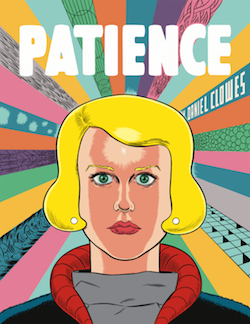
Nobody can really argue that Dan Clowes is underrated—the man’s name is synonymous with high-quality literary comics—but Clowes is a rare talent in that he keeps getting better as he ages. For those reasons and more, his newest book, a time-traveling comic titled Patience, is one of the most-anticipated books (not “comics”; books) of 2016. Fantagraphics Bookstore & Gallery, 925 E Pike St, 658-0110, fantagraphics.com/flog/bookstore. Free. All ages. 6 pm.
Sunday March 13: Hannah Notess
Seattle poet Hannah Notess’s latest collection, The Multitude, has been a long time coming. Her excellent video-game-obsessed chapbook Ghost House won Floating Bridge Press’s 2013 Chapbook Award, and she’s kept a relatively low profile in the intervening years. We could use more fun, energetic, clear-headed poets; hopefully after this reading Notess won't disappear for another three years. Elliott Bay Book Company, 1521 10th Ave, 624-6600, elliottbaybook.com. Free. All ages. 3 pm
Monday March 14: The Starting Gate Release Party
When celebrated local playwright Paul Mullin announced his retirement from theater, everybody hoped it was more of a Jay-Z kind of retirement, as opposed to the Sean Connery variety. Thankfully, this debut party for his raucous memoir, The Starting Gate, indicates he’s not out of the writing game yet. St. Andrews Bar & Grill, 7406 Aurora Ave N, 523-1193. Free. 21 and over. 7 p.m. PAUL CONSTANT
Tuesday March 15: APRIL Festival Opening Night Party
If it’s March, that means it must be time for APRIL, the annual small-press literary festival that smashes drag queens, fancy clothes, and booze together into an orgasmic explosion of books and art. This year’s APRIL—the name stands for Authors, Publishers, and Readers of Independent Literature—is the fifth annual festival, and it demonstrates a few signs of maturity. For one thing, the early evening happy hour readings that used to be an integral part of the APRIL experience have disappeared this year, leaving a leaner and more focused schedule in its place.
But don’t expect a subdued affair. This is the same festival, after all, that once concluded an event with Ed Skoog reading poetry in a parking garage while the audience circled him like some sort of literary Fight Club. They ended one dark, death-obsessed reading with a joyous surprise Ezell’s fried-chicken feast. Last year, they produced a literary séance hosted by Rebecca Brown that delivered the spirits of Gertrude Stein and Alice B. Toklas to the Sorrento Hotel’s Fireside Room in a goofy, romantic celebration of literary love. APRIL is all about putting writing into uncomfortable places and seeing what happens.
On Tuesday, APRIL hosts an opening night party at the Pine Box, and as always, they’ve assembled a killer lineup to kick off the festival: Olympia poet and translator Alejandro de Acosta; Sarah Jaffe, whose coming-of-age novel Dryland was ecstatically blurbed by no less a titan than Argonauts author Maggie Nelson; APRIL writer-in-residence Jenny Zhang; and Short Run co-founder and cartoonist Kelly Froh. So right there, you have a translator who publishes essays in anarchist journals, a subversive young adult author, one of the city’s finest cartoonists, and the New York-based Zhang, whose precise essays, fiction, and poetry marks her as one of the hottest up-and-coming young names in NYC literary circles. What happens when you pack them all in a bar and get some booze in them? Who knows? You have to show up and see; that’s part of the fun.
But there’s sure to be more than just a few impressive names at this party; in five years APRIL has proven itself to be genetically incapable of putting on a boring event. Their opening parties have involved mind-bending drag performances, shiny mylar balloons, music from fun bands like Pony Time, pizza, and the occasional giddy burst of hair metal. “Expect the unexpected” is more than a shitty bumper sticker—it’s the one rule in the APRIL Festival guidebook.
The opening night party kicks off what looks to be a gratifying week of festivities including a fifth anniversary party bringing back some of APRIL’s greatest hits including Skoog, Galvin, Maged Zaher, Robert Lashley, and many more; a visual art show inspired by Zhang’s poetry; a talk by David Schmader about the depiction of writers in movies; and the climactic APRIL Book Expo at Hugo House, which, for one day, becomes the largest non-corporate bookstore in the entire state of Washington. The cherry trees are blooming, the days are getting longer, and APRIL is arriving in March. It’s time to get excited. The Pine Box, 1600 Melrose Ave, 588-0375, aprilfestival.com. Free. 21 and over. 7:30 pm.
Sad news: Jessa Crispin, founder of the popular book blog Bookslut, announced on Twitter that she's shutting down the blog after 14 years. Bookslut was one of the very first book blogs I ever read, along with the late, lamented Bookninja, and it was hugely influential for me. (I sent a terrible pitch to them when I was just starting out and, thankfully, never received a response.) If you've never read Bookslut, I encourage you to go check it out; all the issues are archived, providing a kind of literary time capsule as far back as May of 2002.
Book News Roundup: Sasquatch sighted in Publishers Weekly
- Seattle publisher Sasquatch Books was celebrated as one of seven fast-growing independent publishers of the year in Publishers Weekly.
As Seattle independent publisher Sasquatch Books enters 2016—its 30th year—the company points to breakout hits such as The 52 Lists Project and A Boat, a Whale, and a Walrus as keys to its recent success. Known for its list of nonfiction books, Northwest regional titles, and guidebook series, Sasquatch has branched out into a variety of subjects, including cooking, lifestyle, and children’s books. It launched its children’s imprint, Little Bigfoot, in 2014 and has already built a list of about 60 titles. Little Bigfoot sales grew 13% in 2015, driven by backlist sales, while Little Kunoichi, the Ninja Girl was a strong frontlist seller.
- We already know that women are under-represented in publishing and awards. But for International Women's Day, Elisabeth Jaquette points out that women receive no awards recognition in the field of Arabic translation:
Across languages, female authors make up 26.6% of all fiction translations and 29.6% of all poetry translations published between 2008 and 2014 in the US. That means for every book in translation by a woman that makes it onto the bookshelves, there are about three books by men. The numbers for Arabic translations are slightly worse: according to ArabLit’s worldwide count, women-authored works accounted for 22.7% of all the Arabic literature in translation published in 2010, and just 17% in 2014, for example.
Publishing’s gender disparity becomes even starker at the prize level. Women in Translation has tracked women’s low representation in literary translation prizes across languages. When it comes to Arabic translation prize-winners, low representation in publishing turns to no representation in awards.
- Bloomberg Business published an interesting story about the aftermath of yesterday’s Supreme Court refusal to hear the Amazon/Apple e-book case, which “centered on whether publishers or online retailers would determine the prices for e-books.” Did Apple and publishers destroy the e-book market by fighting against Amazon’s proposed standard $10 pricetag for e-books?
There’s a widespread assumption that digital media always wins out over physical media. But even the Internet isn’t immune to the basic laws of economics. E-book sales declined 12.3 percent over the first 10 months of 2015, compared with the previous year, according to the American Association of Publishers, which compiles data from 1,200 companies.
USA Today talked with tech analyst Rob Enderle about the purpose of Amazon’s Amazon Books store. In the article, Enderle confirms what most of us have been saying for a while: books are a part of Amazon’s lifestyle brand, but they’re probably not the main reason for the stores:
"The books are just window dressing," he said.
Amazon's using them to create a comfortable space for people to come in and get acquainted with its electronics offerings, he said.
In celebrity news, Amy Schumer's book, The Girl with the Lower Back Tattoo, will be published on August 16th. Schumer claims via Instagram that this makes her the "First woman to write a book." I can't wait to read this one.
Science fiction author Charles Stross has compiled a very long and very entertaining list of all the many space opera clichés. Hopefully, Stross is at work on a space opera that will avoid every single one of these dozens of traps.
Triangulation
She squishes through fish, salmon stacked up to the door,
boots tracking scales in the wheelhouse, on the galley floor,
down the companionway, and in the engine room.
By the end of the day, there are scales on the mast. Scales
on the deck winch, on the ladder and steps. Scales in her hair,
in her gloves, up her sleeves, behind her ears. Scales
like freckles. Scales like glitter. Like bindis, like dragon skin.
Scales in her eyes like contact lenses. Scales flaking
and scales sticking like glue. Scales flashing like diamond bling,
like glow-in-the-dark stars on the ceiling, like fairy dust,
like silver dimes, like new shoes on the first day of school,
like piñata candy spilled into rust-colored mud. Scales
that taste like caviar, like salt, like sperm, the musty crush
of ocean and the stink of lust. These confetti-cake scales,
these sprinkles and bejewelers, these flat raindrops, these
dollar signs, these smashing dashing scales like a pint-size
helping of spice, you lucky bastard, you don’t even know,
but for each of these she scrubs and scrapes and cleans away,
she dreams your fingers drumming softly on her skin. In the shower,
she dreams your fingers into streams on her back, into stars
that see, into mist, into smoke, into fire that breathes.
Your fingers are whole notes on the bass clef or willows
sweeping windows in a warm breeze or cigarettes or
a fast bet you win in a hailstorm of desire. Fingers
that smell like diesel, like danger, like a damp, darling copy
of her body. Fingers that chart her scars like ocean trenches,
that flit like a seabird skims sky. Fingers that tap like a typist
but spell crave like a racecar takes curves. Fingers like buttons
on a birthday suit, like the wrong wrench, like the right wrench
and the screwdriver that turns everything loose. Fingers
like marching, like ants, like the crumbs they hunt,
and the sugar they love, like butter, like cream, like I scream
into a cornfield from a car full of flesh. She dreams
his fingers on fleece, on flannel, on denim, on copper,
on cotton, on nipples, on knees. How can I compare? I love her
the way a King’s black mouth gapes for air, the way
any salmon will taste the whole ocean and still turn for home.
Your Tuesday in Readings: All the best writing happens in revision
Your Week in Readings, our weekly column highlighting one amazing event per day, is moving to Wednesdays. But we don't want to leave you without events for two days, so here's a special supplementary listing for today:
Once you get the practice down, most writers will tell you, writing is easy. It's the revising that's tough. When you understand that fact, it's really kind of surprising that aspiring authors spend so much money on how-to-write classes, when it's the revision classes that ought to be their focus.
Tonight, the Hugo House is hosting a rare revision-focused event titled Marginalia. Seattle author Adrianne Harun and Seattle screenwriter and author Ramon Isao will join novelist Dana Spiotta to discuss the act of revision — what works, what doesn't, and why it's so damned important.
These are three writers at very different places in their careers — Spiotta publishes regularly and teaches writing at Syracuse; Harun is just getting started as a novelist but has also published a short story collection; and Isao has been published in literary journals including Hobart and the Iowa Review. They presumably each have very different revising techniques and philosophies, so between the three of them, you're very likely to find someone whose idea of revision speaks to you.
It's free! Go learn.
Book News Roundup: This year's Lit Crawl is October 27th
Lit Crawl Seattle announced the date for this year's crawl: October 27, 2016. Save the date. (And if you didn't attend last year's Lit Crawl, here's our roundup to give you an idea of what you missed.)
The MFA in Creative Writing program at Whidbey Island's Northwest Institute of Literary Arts is in serious financial trouble. Here's a letter from a student outlining the problem — "We are devastated to learn that, in the middle of our semester, we have no idea if we will continue," she writes — and here's where you can donate to help.
Amazon has announced that they're opening a second Amazon Books physical location, this time in San Diego. In case you haven't read my review of the first Amazon Books, here's a taste of what San Diego is in for.
This is something that anti-e-book commentators have been warning for years, and it appears to be coming true in Great Britain. Barnes & Noble's Nook e-book business is shutting down over there, and Nook users just received a warning that they're working "to ensure that you have continued access to the vast majority of your purchased NOOK Books at no new cost to you." Note that "vast majority," there. When you "buy" an e-book, you're really just licensing it; it's not like buying a physical book, it's like purchasing software. If the deal changes — if an e-book supplier goes under, for instance — you might not have access to your books anymore. Sounds like some British e-book buyers are about to learn that the hard way.
Harper Lee's will has been sealed. Someone is going to write an amazing biography of Harper Lee at some point, and they're going to report on what really happened in the last years of her life. I hope that book comes out before I die.
Brandon Hicks's "Profiles of Cartoonists" at The Rumpus is a very funny, if unfortunately typo-ridden, overview of the sad state of professional cartooning today.
Easter in the middle of the night
Catherine's Pascha, written by this week's sponsor Charlotte Riggle and illustrated by R.J. Hughes, is about a girl's determination to stay awake for Pascha. In the Orthodox Christian church, Easter services are held in the middle of the night. It's a story of a girl's coming of age in the culture of her family, and learning about tradition and faith.
Charlotte will be appearing March 11th at A Good Book Cafe in Sumner for a Kid's Night in the Bookstore, for snacks, a reading, and a lights out tour of the store with flashlights. Only twenty slots are availble. Find out more, and read a sample from Catherine's Pascha on our sponsors page.
If you're a small publisher, writer, poet, or foundation that is looking to back our work, and advertise your own in an inexpensive and expressive way, take a look at our open dates. We'd love to talk to you about opportunities to sponsor us.
Lunch Date: South Indian food with Madeline DeFrees
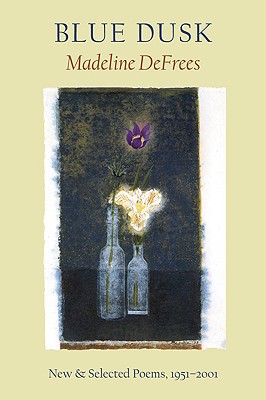
Who’s your date today? Blue Dusk: New & Selected Poems 1951-2001, by Madeline DeFrees.
Where’d you go? Dashkin South Indian Bistro, in downtown Kirkland. (Yes, it's my second Indian restaurant in as many weeks, but let me tell you: if your weekend hobby is walking to the Seattle suburbs, Indian restaurants are almost always your best bet if you want good food from a non-franchise restaurant.)
What’d you eat? I had the Dakshin Breakfast Box ($10.95), a sampler plate with a mini masala dosa, medhu vada, and sambhar, among other delights.
How was the food? Delicious! My only other experience with South Indian food is the beloved Chili's in the University District, and Dashkin is even better than that: the food was spicy and sweet, the dosa was fried but not heavy, and the presentation was excellent.
What does your date say about itself?
Contradiction and ambiguity are essential to the poetry of Madeline DeFrees. Her work is concentrated, multi-layered, spliced with humor and characterized by a passionate interest in every aspect of words: their literal and figurative meanings and associations; their histories, usage, disappearances, and resurrections. In her recent poems she approaches complex subjects with a new clarity, the dividend of a long investment in the art of writing.
Is there a representative quote? Try this, from "Shackleton":
Two faces of the same coin: poet and explorer. This
is Shackleton's third
expedition to the Antarctic since he had a vision
of the ice — still more, of isolation.
Will you two end up in bed together? Yes. I've been reading through DeFrees's body of work since she passed away last year, and I've been continually impressed with her craft. I've also become more convinced of her important place in the Seattle poetic tradition. She's thoughtful and earnest and intelligent and a little bit prickly, just like the best of our poets. I think that Blue Dusk is perhaps the best and most accessible of her books for those looking to experience DeFrees for the first time. It's a book I'll be taking with me in my walks around the region for many years to come.
Your Monday in Readings: Just a couple of Steves, talking at Town Hall
Your Week in Readings, our weekly column highlighting one amazing event per day, is moving to Wednesdays. But we don't want to leave you without events for two days, so here's a special supplementary listing for today:
Really, who doesn't stare out at Mount Rainier every once in a while with a sense of foreboding? After all, the eruption of Mount St. Helens is recent enough — in geological terms, it's barely been a matter of seconds — that we all understand what happens when a mountain decides to blow its metaphorical and literal top.
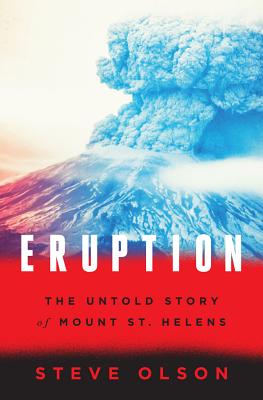
Tonight, Olson will be in discussion with Steve Scher at Town Hall. Tickets are $5. You should go.
Big news from Seattle comics publisher Fantagraphics tonight, via the New York Times: President Obama has written the foreword for the upcoming 25th volume of The Complete Peanuts, the chronological reprinting of Charles Schulz's newspaper strip. (This volume collects the very end of the series from 1999 through Schulz's death in February 2000, although a 26th Complete Peanuts volume, collecting ephemera and rare artwork, will be published this fall.) Go read the story to find out how Fantagraphics scored such a coup.
The Sunday Post for March 6, 2016
Born a slave, Emma Ray was the saint of Seattle’s slums
A great history, by Lorraine McConaghy, of an early Seattle activist, who used her faith as a driver to help people.
Emma was very pretty, describing herself as somewhat vain; she wore false hair to frame her face, loved fancy clothes, played cards, went to dances, and wrote of sharing a “bucket of beer” with a friend in Seattle, as the two women commiserated about their errant husbands. But she was deeply dissatisfied with her life, her marriage and herself. She began to attend the African Methodist Episcopal Church and found friendship there, though she didn’t dare attend evening services because she “was afraid to leave Mr. Ray for fear he would go off to the saloon.”
Watching And Reading About White People Having Sex Is My Escape
Earlier this week, Paul looked at Romance Novel: the Movie. For a different look on the genre, Esther Wang, takes a clear-eyed, and very personal, look at why romance and porn can offer a break from the racial politics and aggressions, micro and macro, that an Asian-American woman sees ever day.
It’s not an exaggeration to say that A Knight in Shining Armor was like a drug to me. Other books gave me a contact high, but this cheesy, over-the-top romance about time travel and a hunky British medieval earl and the hapless American woman who loves him and solves the mystery of who is trying to kill him and ends up not only saving his life but rescuing his reputation for posterity (I know, I know) shot through my young veins and straight to the pleasure center of my brain. I swear my body must have hummed through the entire book.
The writer who made me love comics taught me to hate them
Susana Polo looks at her relationship with Batman, and Frank Miller. What's it like for a girl to read those comics?
I realize that I have never read a Frank Miller book with an original female character who didn't fall into two categories: sex worker — or victim of a brutal beating or murder. Even the first female Robin gets sliced up by a bad guy in the climax of The Dark Knight Strikes Again. Come to think of it, Miller also seems to enjoy characterizing his extra-creepy male villains as having ambiguous sexuality or gender. You're not threatening, it seems, until you're sexually threatening to a straight guy.
She Wanted to Do Her Research. He Wanted to Talk ‘Feelings.’
A. Hope Jahren illustrates an email she received from a former student with the sad reality that women in the sciences, especially graduate studies, have to put up with innapropriate abusers again and again.
Brilliant men make for good copy, even when they fail at their jobs. Recently, reports of sexual harassment and assault within science departments at the University of California, Berkeley, Caltech and the University of Chicago have been in the news. Academia will have to respond. A great chorus of formal condemnation shall be lifted up, and my male colleagues will sputter with gall, appalled by the actions of bad apples so rare they have been encountered by every single woman I know.
Expand history's reach with Young Adult books - Kickstarter Fund Project #9
Every week, the Seattle Review of Books backs a Kickstarter, and writes up why we picked that particular project. Read more about the project here. Suggest a project by writing to kickstarter at this domain, or by using our contact form.
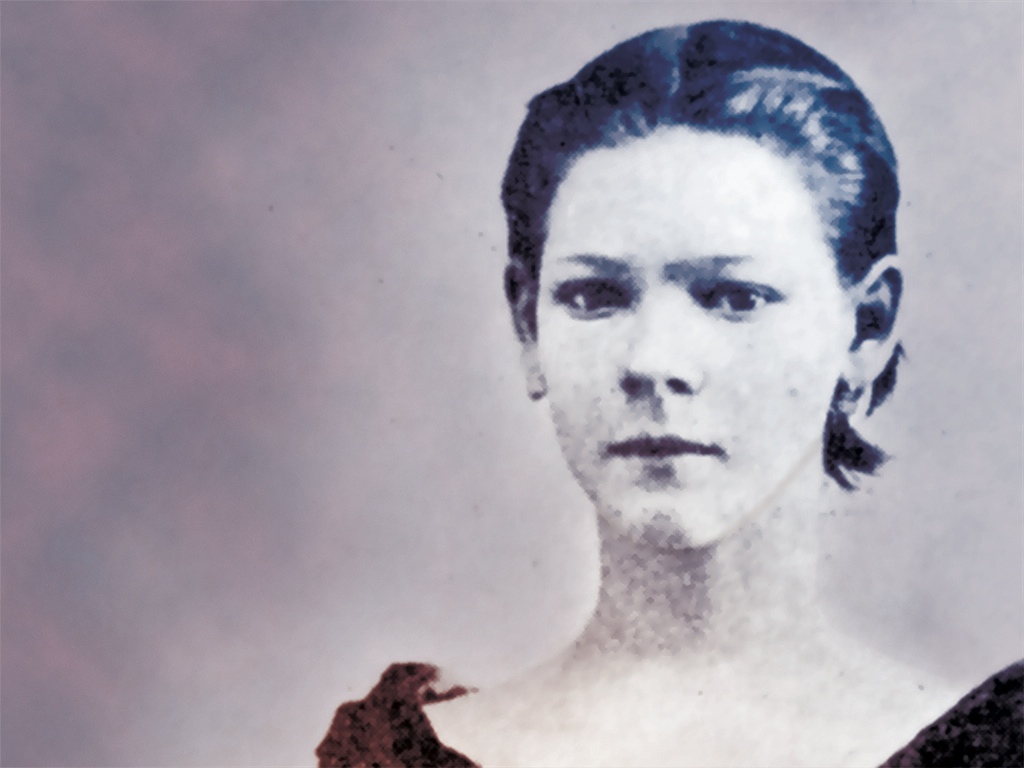
What's the project this week?
Expand history's reach with Young Adult books. We've put $20 in as a non-reward backer
Who is the Creator?
What do they have to say about the project?
We're publishing YA page-turners from America's hidden history. They're not just for kids!
What caught your eye?
I like their pitch exactly as they lay it out: they're making history books for a YA audience. So, they use the compelling storytelling of good narrative nonfiction, with the idea to teach kids about history.
Quindaro Press is a fairly new endeavor, but as their video points out, in a world of dystopian fiction, isn't it nice to sneak a few fascinating real histories into kid's hands?
Why should I back it?
The books are not only historical, but really interesting — from the untold history of women and girls that worked munitions factories for the Civil War; when their were accidents, the reporting favored news of the war. Or a report from an eyewitness at the Battle of Gettysburg, a 15 year old girl named Tillie. Or the story of Clarina Nichols, who worked for women's rights after escaping an abusive marriage in the 1820s. Or the story of twenty tribal nations marched west to reserves when the government's Indian Removal plan was put into action in the early 19th Century.
Those four books in this series this Kickstarter is covering, and you can get the whole bundle for $50. That's not such a bad deal.
How's the project doing?
13 days to go, and they're 51% funded. It might be close, so if you're tempted, now woudl be the time to back.
Do they have a video?
Kickstarter Fund Stats
- Projects backed: 9
- Funds pledged: $180
- Funds collected: $120
- Unsuccessful pledges: 0
- Fund balance: $860
Drawn this way
Published March 04, 2016, at 12:00pm
With Nimona up for a Nebula award, and Martin unable to stop babbling about it, we thought it was high time to put a review up.
The Help Desk: I loaned someone a book. Will I ever see it again?
Every Friday, Cienna Madrid offers solutions to life’s most vexing literary problems. Do you need a book recommendation to send your worst cousin on her birthday? Is it okay to read erotica on public transit? Cienna can help. Send your questions to advice@seattlereviewofbooks.com.
Dear Cienna,
A co-worker and I often trade book recommendations. She has more seniority than I do but we are both in management. She recently went on a vacation and borrowed two of my paperback books that I had recommended to her. But she only came back with one of the books. She said the other one had fallen in the pool and then she ended up giving it to one of her fellow vacationers. She half-heartedly mentioned that she'd look for a used copy of the book to replace it. It's been a few months and she hasn't. Any advice?
Feeling Burned in Ballard
Dear Burned,
You are never going to get that book back. We both know that. What you need to do is suck it up and do the adult thing: drop it. Keep lending her books. Likewise, return her books in pristine condition. Smile at her in hallways. Volunteer to partner with her during team building exercises at work. Eventually, ask your spiders to make themselves scarce for an evening and invite her over for dinner. Over a bottle or two of mid-range wine (don't go cheap, she's not a monster), ask her searching questions about her life's goals and ambitions. Press her about family or her partner, if she has one. If she doesn't have a partner, ask her why she thinks she is not worthy of love? When she's ready to leave your home at the end of the night, brush your fingertips down her arm, look deep into her eyes and tell her that you admire her. Continue cultivating her friendship. Invite her to happy hours, birthday parties, book readings. Invent inside jokes. Trade family recipes. Text emojis apropos of nothing.
Then, months from now, when the book she failed to replace is a distant memory, invite her to join you at a weekend Friends of the Seattle Public Library book sale. The sales are popular and a ton of fun, especially for two best friends who share the same passion and taste for literature.
Offer to drive.
Pick her up.
Tell her you need to make a quick detour before hitting the book sale.
Drive her to the desert.
Tell her to get out of the car.
Then, leave her for dead with nothing but a Danielle Steele novel and 6 inches of garden hose.
Consider it your own version of Naked and Afraid, Book Stealer Punishment Edition.
There are downsides to this plan – if she survives you will likely be written up by HR. But I think we can both agree it will be worth it.
Kisses,
Cienna
Romance Novel: The Movie
The romance novel industry, someone announces early in the new documentary Love Between the Covers, is both “a female industry” and a “multi-billion dollar industry.” Plenty of other genres — sci-fi, horror, fantasy — are continually re-appraised by critics and celebrated for their literary worth, but romance novels have never received anything close to mainstream acceptance, even though romance novels, by any metric of popularity or commercial success, are the mainstream; one title card in Covers informs us that in the past year, “75 million Americans read at least one romance novel.”
So why does the most popular genre in publishing, by far, never get any respect? Look back to that first quote: the many romance authors, publishers, and fans interviewed in Covers suggest that it’s because romance novels are by, for, and about women. Quite simply, they say, it’s sexism. They argue that the charges levied against romance fiction — that they’re more about quantity than quality, that they’re formulaic — could easily be aimed at superhero comics, say, or mystery fiction.
Director/producer/screenwriter Laurie Kahn uses Covers to dismantle those charges by investigating the diversity of the romance scene. Much of the film takes place at a Romance Writers of America national convention, where we meet enthusiasts for the various subgenres of romance; Amish romance, lesbian romance, historical romance, African-American historical romance, steampunk romance. And so what if most of these books are obsessive about their quest for the HEA (an industry acronym for “happily ever after”)? It’s the journey, not the destination, where the art happens.
Covers does a fine job of representing the many levels of the industry, from an interview with bestselling romance author Nora Roberts to frank discussions with self-published authors and a blue-collar author who “had written 53 books” before she could finally quit her day job. (Too-precious authors of literary fiction would undoubtedly weep on hearing how many books romance authors are expected to turn out in a year, and they might be in danger of going comatose when one fan admits to an astonishing 30-book-a-week reading habit.) And it ably documents the upheavals the industry has gone through in the time since the invention of e-books and the dawn of self-publishing.
Kahn builds her argument well, poking around the romance industry for its most eloquent and ardent defenders. But the film does suffer from an aura of amateurishness; the edits are clumsy, the soundtrack is generic, and the occasional romance-cover animations that break up the talking-head monotony are awkward as hell. And a few of the experts don’t really bring anything of note to the conversation. Did we really need, for example, to be informed that a good romance plot is like a roller coaster? And did we really need that metaphor to be spelled out in excruciating detail as black-and-white footage of a real roller-coaster ride plays over the monologue? Were you to cut all the cliche and lazy thought out of this sub-90-minute film, it would likely be about an hour and ten minutes long.
But if you can get past the frugality and the occasionally spotty filmmaking, you’ll find plenty of interesting stuff in Covers. The novelists are charming nerds, glowing with pride about their accomplishments. The experts bring nuance and historical context to the tradition of romance novels, redefining them as artistic statements by strong women for empowered audiences. As a close examination of the most misunderstood bookstore category, Covers seeks to rehabilitate the genre that has dominated American literary culture for the last 100 years. You'll never look at a romance cover in quite the same way again.

